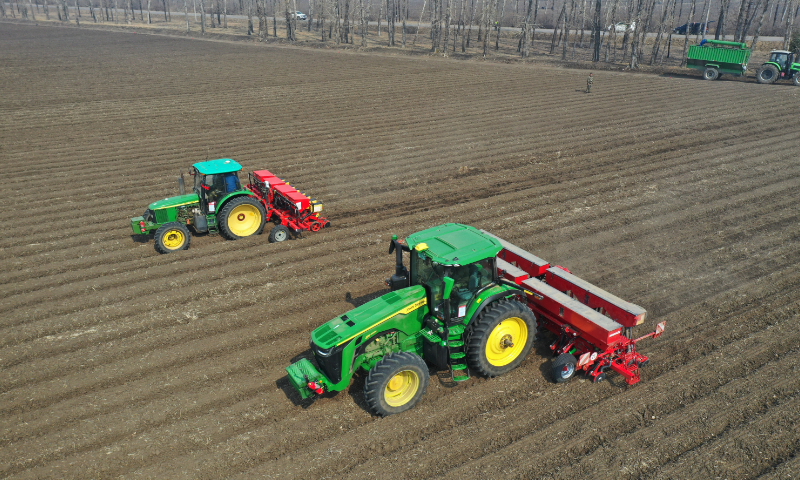At least 14 provincial officials under investigation since August amid grain anti-corruption campaign

Farmers seed corns in Youyi county, Shuangyashan, Northeast China's Heilongjiang Province on April 19, 2022. Photo: VCG
At least 14 provincial officials have been investigated since August last year, as China has been focusing on anti-corruption in the field of grain purchases and sales.
As the largest province of grain production in China, Northeast China's Heilongjiang Province is the "ballast stone" of national grain security. Heilongjiang has investigated six provincial cadres, including two former heads of provincial grain industry since 2021.
As of April 15, 2022, the discipline department of Heilongjiang Province have filed a total of 686 cases of 1,009 people, according to nbd.com.cn on Wednesday.
Provincial-level leaders in grain industry in other provinces such as East China's Zhejiang, Fujian and Anhui are also under investigation.
Those cases show that corruption existed in many aspects of grain procurement, storage, sales, and enterprise operation and management, according to media reports.
Zhang Wufeng, former director of the National Food and Strategic Reserves Administration, is being investigated for suspected severe violations of discipline and law.
Zhang is also a former secretary of the leading Party members group of the administration.
The investigation is being conducted by the Communist Party of China Central Commission for Discipline Inspection and the National Supervisory Commission, according to a statement released on Wednesday.
Chinese authorities reaffirmed the country's focus on ensuring grain security, as China has introduced a series of policies to boost grain production this year, according to the Ministry of Agriculture and Rural Affairs and the Ministry of Finance.
The country will issue more one-time subsidies for farmers to help them cope with increasing expenditure caused by price hikes of agricultural supplies, the ministries said.

